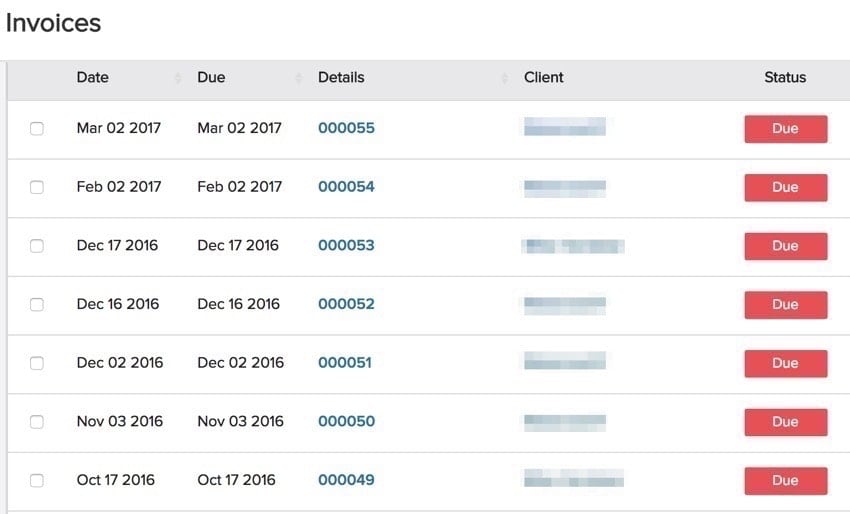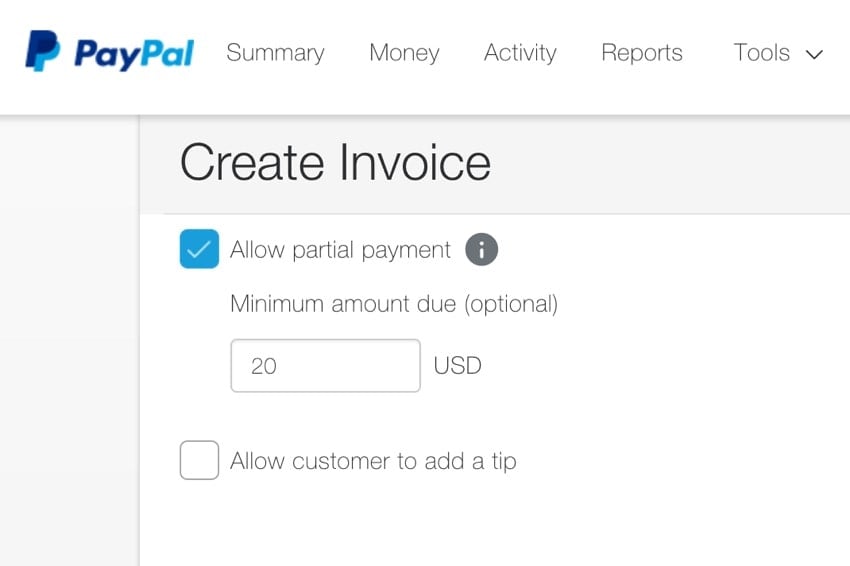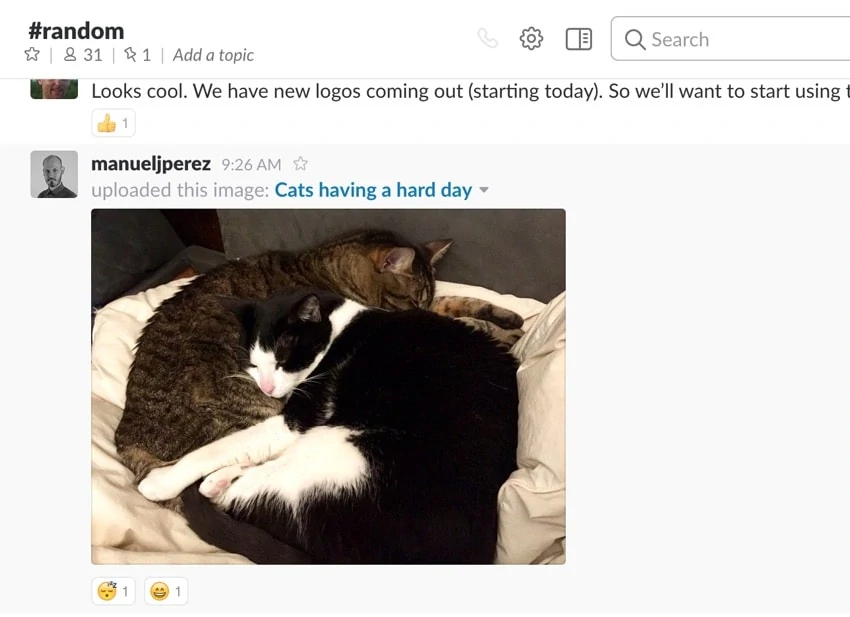Running an agency is hard.
In some ways, it’s harder than running a more typical small business. Agencies have different issues and different things to think about. And that means they need different solutions.
What are those challenges? And how can you overcome them?
Check it out below:
Boost your team’s efficiency with Hubstaff's productivity tools
Try it free for 14 days1. Finding clients

Every business needs clients. You aren’t going to make money and become successful out of thin air, are you?
But the pressure is often greater on agencies.
Why?
Individuals have a chance to stand out from the crowd and let their personality do their marketing. Agencies, on the other hand, might find it difficult to stand out. From a potential client’s perspective, they all look the same, act the same, and offer the same services.
Bring in new clients with a better proposal
Get your free agency proposal template.
If you were looking for someone to do some work, would you choose a freelancer with an interesting personality or a seemingly soulless, boring agency?
As a chef would tell you when making their signature dish, it’s all in the presentation.
Here’s how to stand out:
Have a great, well-designed website
No company gets anywhere without a well-designed website. It has to be informative. Visually attractive. And optimized for mobile devices.
If you’re a web design agency, you don’t need to be told what makes a great site. But for others, here are some things to include:
- Optimized images to improve page loading speed (we use WP Smush)
- Few plugins and embeds (again, to increase loading speed)
- No Flash, Javascript, or pop-up windows
- No excessive third-party advertising
- Text that is short, concise, and to the point
- A well-designed and easy-to-find contact page
- Search engine optimization (SEO) to make your site easy to find
Write a blog and email newsletter
On that fantastic website of yours should be an active blog.
Search engines love fresh content, and sharing your expertise will help establish you as an authority in your field. A good blog also shows potential customers that you’re the perfect person for their project.
Discussing issues related to your industry—and, more importantly, to your clients—will keep people coming back and make sure they remember your name.
Having an email newsletter to go along with your awesome blog is a good idea, too. Some people love getting new blog posts in their inbox. The option to subscribe to your newsletter ensures that readers get your content in the way they prefer.
Speaking of email . . .
Reply to emails within the hour
Nothing infuriates people more than taking the time to carefully craft an email . . . and getting no reply. Or getting a reply weeks later.
Why not wow them by having dedicated staff replying to company email? A response in under an hour will set you apart from just about every other business out there.
New customers should get a personalized response with a direct phone number to an employee.
Placing an emphasis on personal communication adds a personal touch. And being personable is crucial in finding clients.
When potential clients call, make sure a human answers
If you were shopping around for a new agency, would you choose one that sent you on a merry-go-round labyrinth of automated phone menus? Or one that was answered within the first couple of rings by a real human being?
Nobody likes talking to a computer on the phone. They want to talk to a real person who wants to talk to them. Throw away the automated menus and make sure your staff picks up a ringing phone immediately.
Show off your previous work
Potential clients want to see what you’re capable of. It’s not enough to tell them you’re an SEO expert or “the best in advertising.”
You have to prove it.
Put your best work on your website, and make sure there’s a prominent link to it from the main page. Include a wide variety of the types of work you’ve done.
Ask existing clients for permission to put their company logos on your site to show you’ve worked with them. (This is especially good for companies who don’t have visual portfolios, like SEO agencies.)
But don’t stop there.
Get testimonials from existing and previous clients
New clients have to be convinced you’re the best. Seeing your work will help, but being validated by previous clients makes a big difference.
Testimonials and reviews are powerful. The concept of social proof is something that’s long been understood in marketing. Look no further than the thousands of websites that say “join 50,000 subscribers” or “thousands of customers enjoy . . .”
Humans instinctively trust other people. Especially in groups.
And because of that instinct, nothing nudges potential clients the extra inch like a client singing your praises.
So when a client thanks you for doing their project well and on time, ask for a testimonial. Put it on your website, post it on social media, and ask them to put it on LinkedIn.
It might sound a little cheesy, but it can make a huge difference. Read about how an agency can find more clients here.
Subscribe to the Hubstaff blog for more posts like this
2. Getting clients to pay on time

Many clients don’t pay when they’re supposed to.
Some genuinely forget. Maybe they’re busy or have a big payroll department where things get backlogged. Some might “forget” because they don’t want to (or can’t) pay.
Obviously, though, if you’re running an agency, you need to keep the money rolling in. Without it, the wheels come off the business. Staff and bills go unpaid. Other work gets thrown off. And the only one to benefit is the client who didn’t pay.
Can’t have that, can we?
Here’s how to get paid on time:
Overcome agency challenges with Hubstaff
Track your team’s time, bill clients more accurately, and streamline payroll with Hubstaff.

Offer the option of partial payments
If a bill isn’t paid immediately, you shouldn’t automatically think the worst. Instead, try to work with your clients.
They might be able to pay part of the bill, for example. Maybe they can pay 50% now with the other 50% coming next month.
This has two advantages:
- You get some of the money right away (better than nothing, right?).
- The client is grateful. You’re showing some flexibility and helping them out. Gratitude brings with it potential future work, possible referrals to others, and a desire to return the favor when you need one.
It doesn’t need to be difficult to offer partial payments. If you invoice via PayPal, it’s as simple as checking the “partial payments” box.

Offer multiple payment options
To make it easier for the client to pay you, give them as many options as possible. Paypal is all well and good, but what about individuals and companies that dislike Paypal?
For a start, you can offer wire transfers to your bank account. Or use Payoneer. You could even accept checks (if you can find someone with a check book).
The more options you can offer, the better.
Set up a robust invoice issuing & tracking system
When you send an invoice, you need to keep track of it. Make a note of the date it was issued, the amount invoiced, and the due date.
Especially the due date.
If the client hasn’t paid by the due date, you need a reminder system in place.
If your operation is small enough, you might get away with an Excel spreadsheet. Supplement it with a Gmail plugin called Streak (or Boomerang), which returns emails to the inbox on a set date.
One of the best options for larger groups (or those who want more automation) is Invoicely. After issuing a PDF invoice, you can send out regular customized reminders. You can be as polite or as stern as you want to be.
If your website is run on WordPress, you can install an invoicing system in the backend of your site.
Charge late fees
This might get mixed results—and caused mixed feelings.
Late fees are legally complicated. And they might only be enforceable if the client signed a contract beforehand. If they’re based in another country, enforcement is probably out of the question.
You could also argue that you’d further alienate the client by demanding late fees. But if they’re not paying anyway, what do you have to lose?
Late fees send a message: “I’m running a business, not a charity. This isn’t a hobby for me, it’s my livelihood. I’m a professional, and I need to get paid.”
It’s amazing how many clients need to reminded of this.
3. Feeling disconnected from employees

Agency work can be a lonely profession.
Your co-workers are often in different places. Different time zones. Working on different projects. Remote work is all well and good, but everyone needs some human contact now and then.
Here’s what to do.
Commit to a daily or weekly online meeting
To make something happen, you need to make an effort. Nothing is going to just happen because you wish it.
So if you want regular contact with your colleagues, set it up. Depending on your staff and their schedules, make it a daily, weekly, or maybe a biweekly meeting.
Adding another meeting to your schedule might not sound appealing. Especially if developing a connection to your colleagues is a primary focus.
But feeling engaged and connected at work has been shown to improve morale and reduce turnover. Consider it an investment in your employees.
Set it up online with one of the many video conferencing apps. Skype, Google Hangouts, Slack, and Appear.In are all great options.
Operate a staff chatroom on Slack
We’re big on Slack here at Hubstaff. We have a number of channels for different projects and teams, but our #random channel is just for hanging out.
We post pictures of our pets, talk about what we’re watching on Netflix, discuss staying in shape while working remotely, and share goofy GIFs.

It’s great for developing personal connections. And it makes a big difference in our connection to the company.
Slack’s integrations can make it super useful. But they can also make a channel a fun place to be. For example, there are integrations for spontaneous exercising at your desk or playing cards.
Run contests and give awards
One of the advantages of working in a physical office is that you can feed off the atmosphere. There’s often a good-natured rivalry that helps motivate employees.
Working remotely or in a dynamic agency environment can make it hard to engender that motivation.
But with a bit of effort, you can use contests and awards to really boost employee motivation.
If you’re the boss, award “Employee Of The Week/Month/Quarter” or something similar. Give tangible awards for meeting sales goals, signing up customers, telling the worst jokes, and more.
It doesn’t have to be much. Even a $10 Starbucks gift card can be highly motivating.
Friendly competition helps people feel connected
And if you’re an agency of one? Award Employee Of The Quarter to your dog.
4. Getting more done with less

Agencies are facing tough times. And that means doing more with less is becoming essential to your survival.
But what can you do to improve productivity? How do you ensure you’re running at peak efficiency?
Here’s where to start.
Assign the right tasks to the right people
How often do you find yourself highly motivated to finish an assignment that you find mind-numbingly boring?
Probably not very often.
Giving people tasks that they’re both qualified for and interested in will get you better results. They’ll be more likely to do good work—and do it faster.
Giving a task to someone unqualified or inexperienced will get you the opposite. They’re going to take much longer or deliver sub-par results.
And that’s not an efficient way to run a business.
Understanding your employees’ strengths and interests will help you boost everyone’s productivity.
Set deadlines
27% of agencies state that getting work done on time is their biggest challenge.
One way to address this (and prevent procrastination), is to set a deadline for every task.
Without a deadline, people tend to think they have plenty of time to complete their tasks.
A deadline, however, instills a sense of urgency.
There’s no need to set aggressive deadlines and micromanage your employees to make sure they get the work done. Realistic deadlines and effective tracking not only keep projects moving along; they also help managers worry less. When you know your employees understand their timelines, you can focus on the things you need to do.
Setting deadlines goes hand in hand with good project planning, too.
Use project management software
Want to make sure your agency is operating at peak efficiency?
Use project management software. There are a lot of options, but we really love our very own agile project management software – Hubstaff Tasks. It was just recently introduced, so don’t miss a chance to try it for free. See pricing here.
5. Adapting to a rapidly changing environment

Agencies are dealing with a lot of change right now. Marketplaces, technologies, and business philosophies are always evolving, and that can sometimes make it difficult to successfully run an agency.
Big companies are hiring in-house teams. Freelance marketplaces make it easy to hire at bottom dollar.
Automated tools for agencies are getting better all the time. If agencies want to survive, they need to adapt, and quickly. There are a lot of agencies out there, and they’re all gunning for the same business.
To stay one step ahead of your competitors in this business, you need to be both flexible and agile.
Here’s how:
Hire the Freelancers Who Are Undercutting You
As I just mentioned, you may find that some of your issues stem from freelancers. Because they have less overhead, they’re often able to undercut you on price.
The solution? Remove them from the equation. No, don’t kill them. Hire them.
Hire your rivals and have them making money for you, not for themselves. Hire them on a freelance basis until they prove themselves. If it works out, sign a longer-term contract.
It’s such a simple solution, but not one many people consider. Most business owners automatically view rivals as a problem, not as a business opportunity. That’s a big mistake.
Persuade companies that going in-house isn’t the way to go
Companies may decide that agencies are too expensive. Or that their contracts are too restrictive contracts. They might balk at having less control over the finished product.
For these reasons, they may be tempted to hire in-house.
There are ways, though, to dissuade companies from this and convince them that sticking with your agency is the best way to go:
- Give them a discount to stay with your agency
- Offer referral bonuses
- Rewrite your contracts to make them less restrictive
- Keep the company in the loop about the progress of their project
- Emphasize the benefits of the company remaining agile with as few moving parts as possible
- Show them how much it would cost to hire in-house
- Emphasize your expertise in your area
Embrace social media
Social media used to be something you could choose not to do. That’s no longer the case.
Today, you need to
- be on Facebook, Twitter, and LinkedIn
- post updates on a regular basis
- connect with current and potential clients
- have a stand-out social media campaign
It’s become more important than ever to take full advantage of social media. If you’re not comfortable with it, hire a social media manager to make sure you’re getting the most out of your efforts.
Potential clients are looking on social media, and they expect you to be there. Make sure you’re visible and engaging. Check out blogs like Buffer and Social Media Examiner to see the best ways to leverage social media.
Be Prepared To Expand Your Repertoire
In the face of change, you need to adapt. One way many agencies have found success is by expanding to offer new services. If a single area of expertise isn’t bringing in enough money, you can change your offerings.
For example, if you offer web design, consider expanding into SEO (or vice versa). Doing media or advertising? Mix it up and offer the other one as well. Do media or advertising for social media clients. Offer video production. Bring on a copywriter.
Keep an ear open for new trends. And when you see one, take advantage of it before your rivals think to do so.
Rise to the challenge
Running an agency is very rewarding. It can also present some unique challenges, especially when it comes to managing time and productivity. Using agency time tracking software can help streamline your operations and ensure you’re making the most of every minute.
If you can deal with those challenges, your agency will succeed. It’s not always easy, and you might sometimes question whether it’s worth all the effort. But in the end, you’ll come out on top.
What sorts of challenges do you come across in running your agency? How do you deal with the unique difficulties of agency life? Share your thoughts in the comments below!
Most popular
How to Calculate a Raise: Practical Guide for Employers
By 2030, the US alone will lose $430 billion annually due to low talent retention — and a lot of this turnover stems from low pa...
How to Survive and Thrive in an 80-Hour Work Week
It’s hard to believe that only a century ago, the 80-hour work week was the norm in the United States. Then, in 1926, the Ford M...
Mastering Workforce Scheduling: Techniques and Tools for Success
Imagine a workday where scheduling your workforce effectively ensures that every shift is perfectly aligned with your business nee...
Top Time Trackers for Virtual Assistants: Enhance Efficiency and Accountability
Virtual assistants (VAs) have a lot of responsibilities — and so do the people who hire them. With so much to keep track of, a t...




